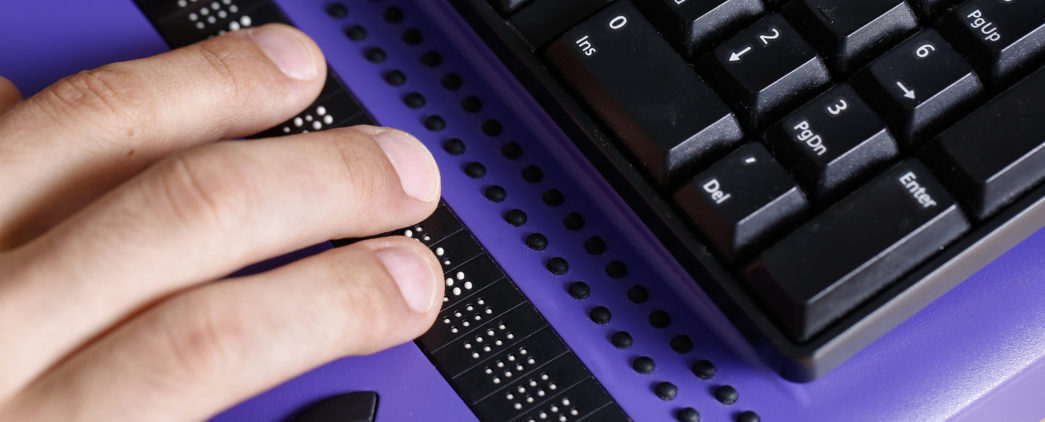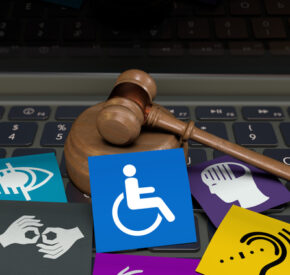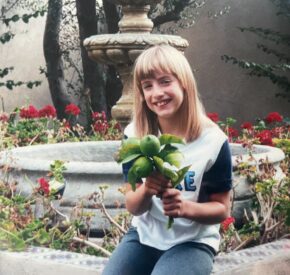A Brief Reflection on Braille Literacy
The continuity of Braille and the value of tactile learning

Many people outside the blindness community are surprised that many of us within it mark January 4 with a quick external social post or a brief internal nod as World Braille Day. Print, including Gutenberg, is in many ways taken for granted. Print is now everywhere, and it is assumed that people who can see will read print. The miracle of print for the masses will never fade, of course. But for those who find print difficult or impossible, print is still an expectation. Braille is a mere 200 years old compared to the six centuries since the establishment of the printing press. Braille is not expected or taken for granted in the same way; many people who are blind or have low vision have to fight for it. Many more, due to the onset of vision change or other factors, live without it.
An Uber driver once asked our student teaching intern and me, “How does it feel to be the last two people on Earth to use Braille instead of a cell phone?” Since we were literally traveling between two Braille-learning students, and because we had just used our cell phones to book the trip, how on earth does one answer that question and unpack a history of assumptions in a three-minute ride, even with the support of a fellow human? (I unmatched us from that driver.)
Louis Braille was a child inventor whose creativity leaves me in awe. With clear practicality, he identified the systemic problem, a need for a fluid method of reading for the blind. He set out to solve it using precise logic and unerring patience for trial and error through many sleepless nights. As Jennifer Bryant deftly illustrates in her beautiful children’s book, Six Dots: The Story of Young Louis Braille, his subconscious was also hard at work. The Braille dots came from the patterns on his mother’s dominoes. The tool to write Braille, a stylus that corresponds with a Braille slate, was very similar to the awl that wounded his eyes as a child, now transformed into a tool for help and healing. And perhaps most critical of all, Braille’s passion for the writing system came from all of the literal and figurative ways he felt like a prisoner and his exhaustion with people apologizing and not taking action. In short, Louis Braille was a dreamer, a thinker, and a doer.
In the modern era, Braille and technology have come together, but not always seamlessly. For the first time, a Braille display can render graphics such as maps, charts and diagrams, which offers so many possibilities for tactile learning; yet at over $17000, its cost is still prohibitive.
I am also reminded of Haben Girma, who has helped me to better understand tactile intelligence. Tactile intelligence is the ability to learn, experience, and analyze the world through touch and is often poorly understood. As Jon Lee Clark points out in his manifesto of essays, Touch the Future, we live in a touch-averse society that prides itself on seeing and hearing, the senses that promote distance. Part of the reason I met the driver’s question with utter shock was that it symbolized a widely held societal misconception, that braille, which gives blind people a nuanced understanding of the structure and beauty of language, is just something optional people just learn along the way before they discover audio. Braille and audio do work together, but not everyone can use audio–still other people prefer Braille for some or all of their communication.
As we work together to foster a more inclusive web experience, I hope more and more developers consider tactile intelligence. Vision and hearing do not make a complete web experience for all of us. Now it sounds far-fetched, but in the still distant future, wouldn’t it be wonderful to feel clothing from your home before you buy it, smell a flower you choose for your significant other, or even taste the food you are about to order? What about easy access to tactile maps so that people without useable vision can understand the geographical landscape of an unfamiliar city or country before they visit?Wouldn’t it be amazing if there were other sensory frontiers of understanding we could achieve by experiencing the world in ways we haven’t thought of yet? Today this seems like poorly plotted fantasy, but two centuries ago, it was thought to be impossible for more than a few blind people to read. People with disabilities often point the way to greater possibilities for understanding the world.
___
Kristen Witucki is a Tamman partner and contributor. A published author and educator, she brings her lived experience and perspective to the Tamman Team




